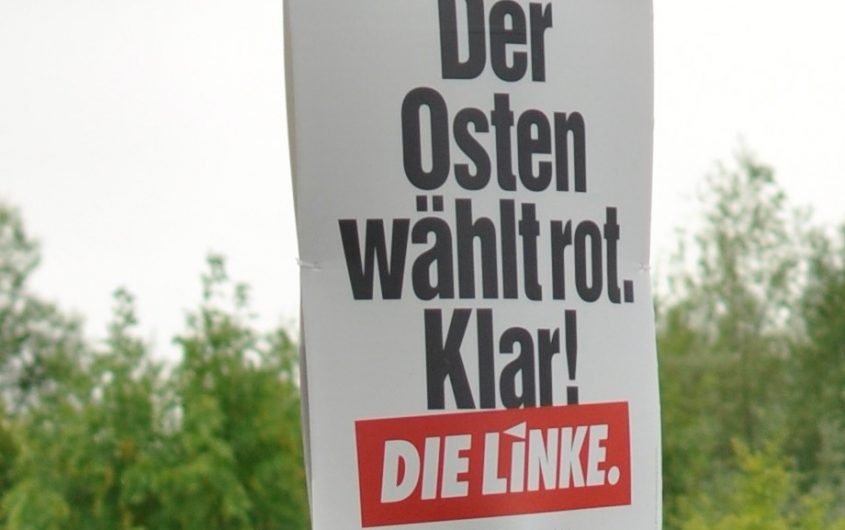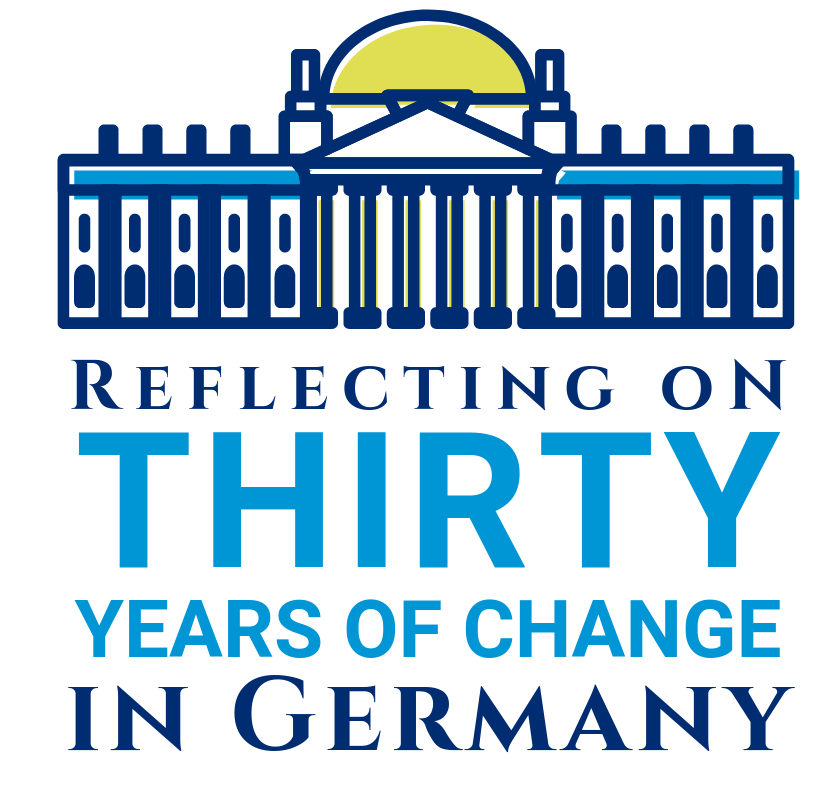
Jim Killock via Flickr This image has been edited.
Divided We Stand

On the Resilience of the Political East-West Divide in Germany 30 Years After the Wall’s Fall
While Germany is commemorating the 30thanniversary of the Berlin Wall’s fall, which paved the way to the country’s political unification, the country remains a divided nation on various political, cultural, and socio-economic levels. Recent regional elections in the Eastern states brought this to the forefront of political attention and generated a broad public debate about the inner-German divide and its origins. In the most striking way, politico-cultural differences within Germany along the old former border become manifest in profoundly different political party systems. In particular, the right-wing populist Alternative für Deutschland and Die Linke, which originated in the GDR, are considerably much more successful in the Eastern regions, while German centrist parties are significantly less electorally successful (and are shrinking faster at the ballot-box) than in the West. The talk discusses the nature of this resilient political divide between the East and the West and offers three main causes and explanatory models : The lasting after-effects of the GDR’s authoritarian political and cultural legacy; continuous socio-economic cleavages and (perceived and actual) Western power allocations; and the agency of parties and movements as political entrepreneurs reinforcing the East-West divide. Only the mix of factors helps understand the depth of the divide and its meaning for a crisis of liberal democracy also affecting Germany, enabling a sound discussion about policies to confront it.
Join AGI for the final seminar in a series on the 30th anniversary of the fall of the Berlin Wall.
Lars Rensmann, Ph.D. is Professor of European Politics and Society at the Rijksuniversiteit Groningen, the Netherlands, where he also serves as the Director of the Centre for the Study of Democratic Cultures and Politics and as Chair of the Department of European Languages and Cultures. Prior to joining the University of Groningen, he was the Chair of the Department of Political Science and International Affairs at John Cabot University in Rome and DAAD Professor of Political Science at the University of Michigan. Rensmann has also held various research, teaching and honorary appointments, including Yale University, the University of California at Berkeley, the University of Vienna, Haifa University, and the Freie Universität Berlin.Rensmann has published widely on comparative German and European politics, international political theory, populism, authoritarianism and antisemitism, politics and historical legacies, as well as global politics and sports. His books include The Politics of Unreason: The Frankfurt School and the Origins of Antisemitism (SUNY Press, 2017), Arendt and Adorno: Political and Philosophical Investigations(Stanford UP, co-edited with Samir Gandesha, 2012), Politics and Resentment: Antisemitism and Counter-Cosmopolitanism in the European Union (Brill, co-edited with Julius H. Schoeps, 2011), and Gaming the World: How Sports are Reshaping Global Politics and Culture(Princeton UP, co-authored with Andrei S. Markovits, 2010).

Location
AICGS
1776 Massachusetts Avenue NW | Suite 600 | Washington, DC






